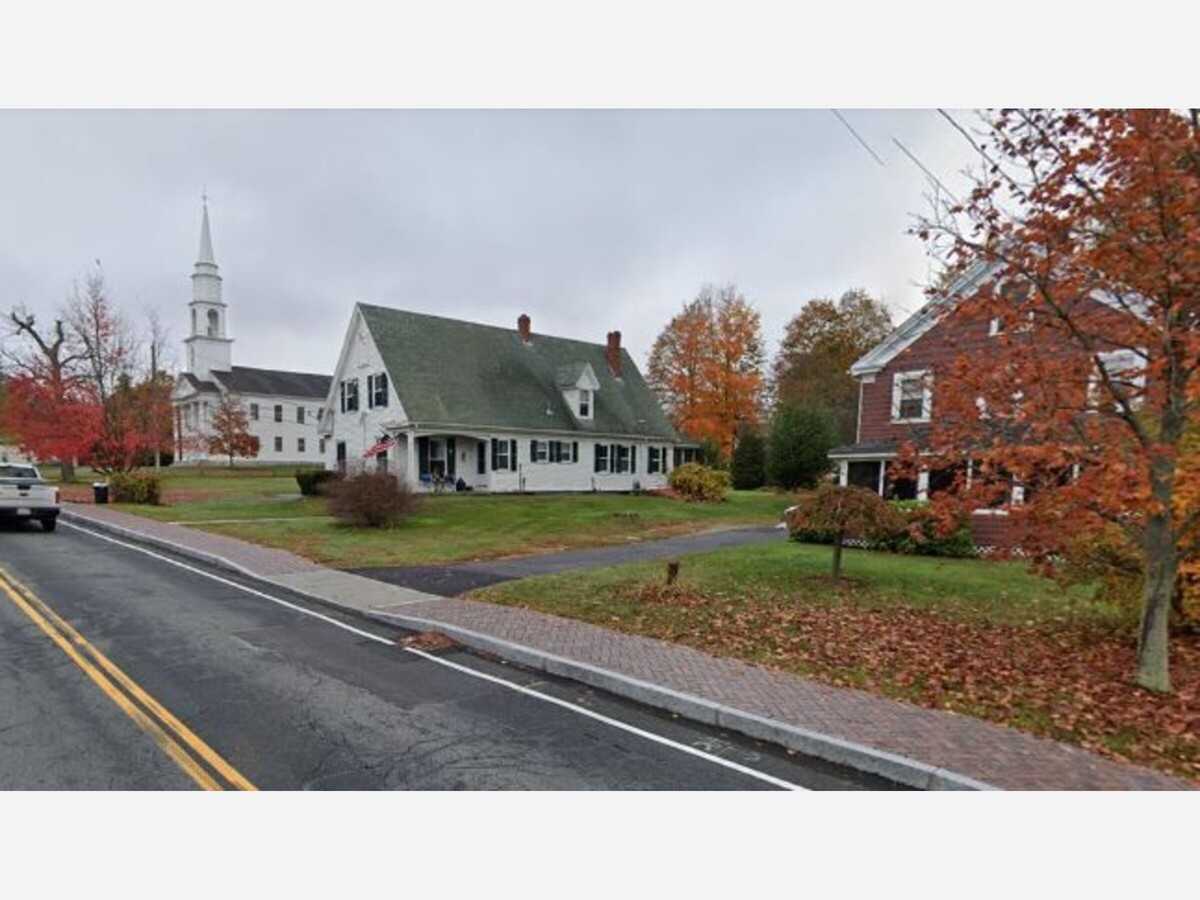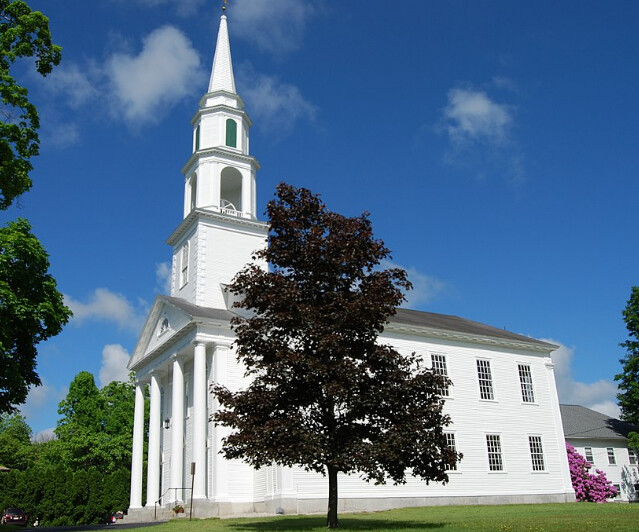Image


Above, a view of part of Mendon Center Historic District
In January, the Franklin Town Council heard from Town Administrator on the subject of Local Historic Districts, and referenced a presentation on the subject developed by Reference Librarian Vicki Earls.
The short version is that National Historic Districts sound great – but offer no real protection for some of the most valued and historic structures located in the town. Local Historic Districts, authorized by the Massachusetts Legislature even before the creation of National Historic Districts, can give communities the power to decide what to protect and how. The process of adopting this measure and creating districts is complex, but experience in two other nearby towns, shows it can be done – and it can work well. Below, Part 1, the Mendon experience.

Lynne Roberts, Chair of Mendon Historical Commission {and also a realtor], explained her experience and that of the town via email:
Mendon is a very old town and is basically a hilltop farming community. We lack the large, beautiful old colonial style antique houses that many of the old Towns in Massachusetts have (Towns like Hopedale, Holliston, Hopkinton, Franklin, etc.). Most of our old antique homes are small cottages, dotted around the countryside. These homes tended to be old farmhouses with small buildings but plenty of land, absolutely the worst-case scenario for preservation and prime for development.
We were losing these homes and the history that went along with them at an alarming rate. Without any protections in place many of these properties were being sold as "tear downs" and there was no way to prevent it. The idea of an Historic District was suggested by the Historical Commission at the time, following a situation where a preservation restriction was in place on one of the oldest properties in Town and the owner decided to ignore it and just pulled the house down anyway. This was the former home of one of Mendon's Founding Fathers. The Historic Commission approached the Select Board and asked for a special Local Historic District (LHD) Study Commission to be created to look into the efficacy of a LHD and how it could work in Mendon to stop or slow down the loss of our history. I was on the LHDSC.
This was not a popular decision. As you can imagine, where a Town has a vast quantity of undeveloped land and little to no restrictions on building and developing said land, those people with a financial interest would not be too happy. In addition, many people do not like the idea of allowing anyone else to have a say or any control in their property.
Many rumors were spread during our study, interestingly not by the people immediately affected (actually living in the proposed District) but by those opposing it. It took the Study Commission many hours of discussion and walking the proposed District and talking to the homeowners to allay their fears. The State is also heavily involved in this and all proposed Districts have to be cleared with them and a great deal of documentation supplied prior to presenting to the Town. (The District has to be approved at a Town Meeting each time).
Honestly, it all came down to the presentation at our Annual Town Meeting where we were able to explain the Study and Proposal and gain the number of votes needed to pass the motion.
The process is set by the State. Our Study took several months to complete as it involves Deed searches on all properties and we were proposing two LHD's at once, one, an LHD covering the center of Mendon and the second, a single-family home.
The State has a very comprehensive outline of what is required and the timetable. Once the decision is made to move forward, the Study is forwarded with certified maps of the area and the State has a certain number of days to review it. If there are any errors or omissions, it comes back and you only have a set period of time to complete it and return.
There are also requirements in the plan which involve presentation to the Planning Board and Select Board and Public Hearings and then presenting to the Town. Each item is timed. If you do not follow that schedule, the project cannot be presented to the Town and you can lose six months to a year before the next available presentation slot. I will say that once the first LHD is completed, any following Districts are much easier to do.
Once these Local Historic Districts were established, The Select Board created a Local Historic District Commission, separate from the Historical Commission, which acts as liaison between the Town and residents of the Districts. They set the LHD design guidelines and help where needed. We currently have 4 Districts. 2 of these are single family homes and the other 2 are districts containing multiple houses. Not all the properties in the multiple home Districts are considered antique or historic but they are still included as part of the District and subject to the same guidelines.
I don't believe it to be burdensome on the Town or residents. To date, we have only had one or two issues where someone wanted information on the guidelines, for example to put solar on their property or put a swing set or shed up. We do not have really strict rules/guidelines as we are more of a village and can be more flexible. I am aware of other Towns where the residents are strictly controlled on color of paint on their home, siding changes, additions, etc. We deliberately wanted to be flexible to encourage owners of these older homes to maintain them as best they could. We also wanted to encourage owners of historic single-family homes to create a District for that home which offers much more protection from demolition that a preservation restriction can do. The State does prefer (or at least did at the time we created our first District) the larger Local Historic Districts rather that the "Swiss Cheese Districts". However, that doesn't work for a Town like Mendon where our historic homes are so spread out that we would effectively have to make the whole Town historic which would definitely not work for all of our homeowners or the Town.
I think that once the residents understand the purpose of the Local Historic Districts and that they are there simply to preserve our history and are not designed to be punitive or to take control of what people can and cannot do with their homes, they are prepared to work with them and can see the benefits. Long term, we are working to put together a handbook for residents of Local Historic Districts to provide information on vendors specializing in restoration and preservation work, roofing suppliers, painters and many other craftspeople with experience in historic homes. We would also like to supply information on taxation benefits or grants to help with that work and even later be in a position to provide some kind of real estate taxation benefit for living in that property.
* * * * *
Mike Lynch, a realtor at Property Services Network Inc., Mendon, MA, also graciously shared his comments via phone, regarding his views on the town’s Local Historic Districts. He also cited the example of the individual who pulled down his old home rather than comply to the restrictions put on it. However, he noted. “That may be the exception; most home owners and most potential buyers are attuned to the charm – and the limitations – of older properties, and the restrictions that a Historic District impose, don’t phase them,” he said.
“If we hadn’t had a Historic District in Mendon Center, and those buildings had been torn down, it would have completely changed the character of the whole town,” he said.
“Many people want a charming, historical community, and that’s what Districts are for,” he added.